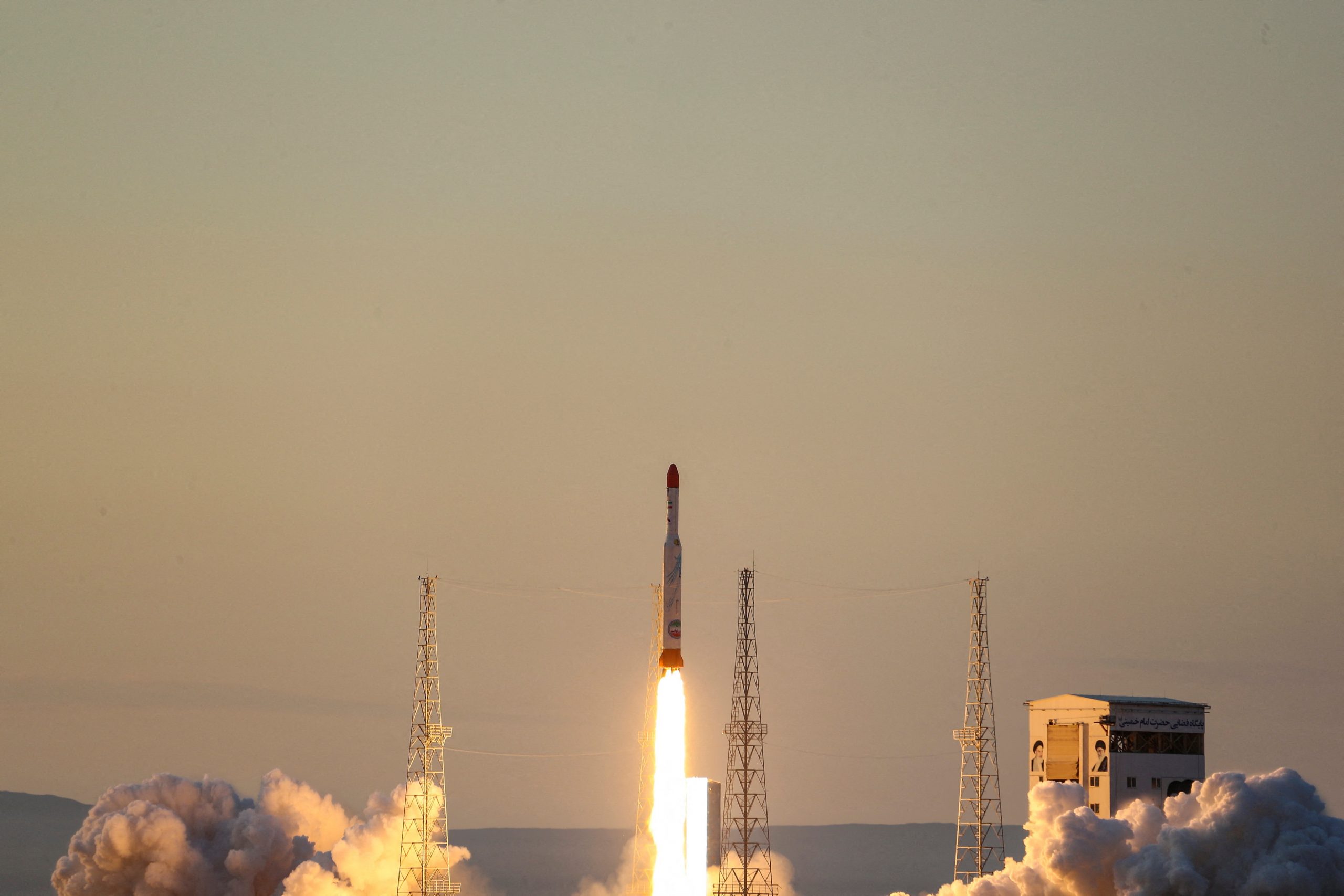
Chris Lange, FISM News
[elfsight_social_share_buttons id=”1″]
Iran’s space launch Thursday drew criticism from Western powers amid ongoing negotiations aimed at salvaging a 2015 nuclear deal. While the launch failed to reach the necessary speed to place its three payloads into orbit, Tehran’s Defense Ministry spokesperson Ahmad Hosseini is calling the mission a success, signaling that more launches are to come.
“The research goals foreseen for this launch have been achieved,” Hosseini said. “This was a preliminary launch. We will have operational launches in the near future.”
Television footage of the blast-off showed a white rocket displaying the words “Simorgh satellite carrier” along with the slogan “We can.” One state TV reporter praised the launch as “another achievement by Iranian scientists,” according to the New York Post.
Tehran continues to deny that its space activity is a cover for ballistic missile expansion, while at the same time claiming the 2015 resolution does not apply to its development of such weaponry. Iran has one of the largest missile programs in the Middle East; however, technical issues have thus far prevented the Islamic Republic from successfully launching payload into orbit.
The bold move has sparked criticism from the U.S., Germany, and France as Washington and Tehran continue indirect nuclear talks in Austria. French officials called the timing of the launch “even more regrettable” considering progress made in the talks, according to Reuters, while Germany warned Iran to stop sending satellite launch rockets into space, citing the United Nations Security Council resolution.
As of Friday, the U.S. State Department, Space Force, and the Pentagon had not yet issued public statements in response to the activity. Washington has previously called on Iran to refrain from conducting its advancement of ballistic missiles capable of delivering nuclear weapons.
Iran maintains that it is under no obligation to stop its rocket tests, claiming they do not have a military component.
“Scientific and research advances, including in the field of aerospace, are the inalienable right of the Iranian people, and such meddling statements will not undermine the Iranian people’s determination to make progress in this field,” read a statement carried by state media.
Pressure has been mounting with nuclear talks set to resume Monday, marking the ninth week of negotiations. Western diplomats caution that time is running out to salvage the accord President Trump called “the worst deal ever negotiated” before withdrawing the U.S. from the deal. Iran has since abandoned all limitations under the agreement, ratcheting up its uranium enrichment from 4 percent purity to 60 percent, making the attainment of weapons-grade levels a mere technical step away.
Ahead of Thursday’s launch, Iranian state media announced planned satellite launches for its civilian space program. Tehran’s paramilitary Revolutionary Guard in a parallel program successfully placed a satellite into orbit last year. The Trump administration levied sanctions against Iran’s civilian space agency and two research facilities in 2019, saying they were being used to further develop nuclear weapon technology.
The Vienna talks thus far have yielded little progress, to the exasperation of Western leaders, with Iran remaining laser-focused on getting sanctions lifted while openly carrying on with its ballistic missile program. State Department spokesperson Ned Price told reporters last week that “it’s really too soon to tell whether Iran has returned with a more constructive approach to this round.”
